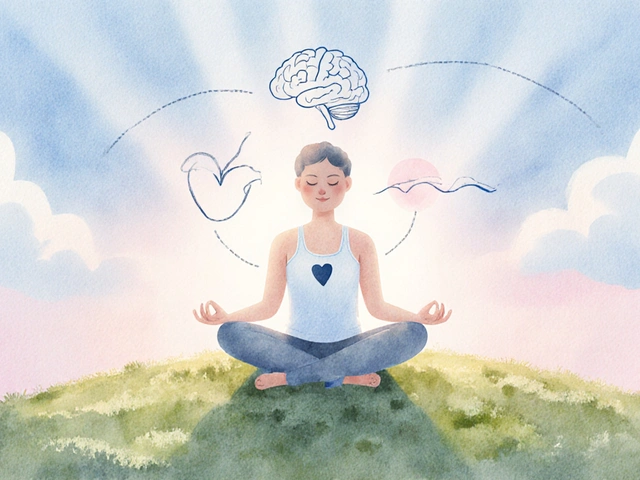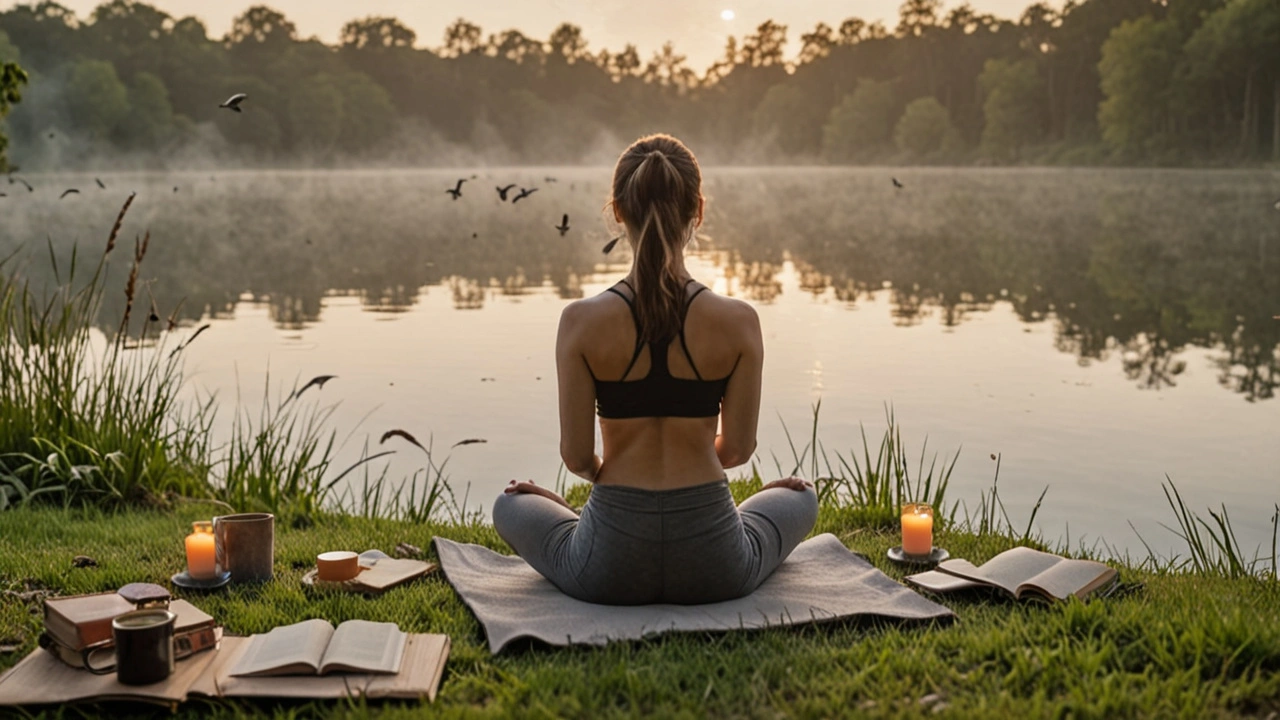
In today's era, where life seems to be in constant overdrive, finding ways to unwind is more crucial than ever. While it may seem like a luxury, relaxation actually plays a fundamental role in your overall health and wellbeing.
Scientific studies have shown that relaxation techniques can effectively lower stress levels, reduce blood pressure, and enhance mood. By engaging in regular relaxation practices, such as deep breathing exercises or mindfulness meditation, one can significantly improve both mental and physical health.
There are various relaxation techniques available, catering to different preferences and lifestyles. Some popular methods include yoga, progressive muscle relaxation, and guided imagery. Each technique offers unique benefits and can be easily adapted to fit into daily routines.
Not only do these practices help in alleviating stress, but they also contribute to better sleep, enhanced focus, and an improved immune system. By taking time out to relax, you are investing in your future health.
Making relaxation a part of your daily life doesn’t have to be complicated. Here are some practical tips: find a quiet space, set aside a few minutes each day, and choose the technique that resonates most with you. Consistency is key, and even small steps can lead to significant improvements over time.
- The Science Behind Relaxation
- Popular Relaxation Techniques
- Benefits to Mind and Body
- Practical Tips for Everyday Life
The Science Behind Relaxation
Understanding the science behind relaxation techniques is crucial to appreciating their immense value. At a biological level, relaxation activates the parasympathetic nervous system, often referred to as the 'rest and digest' system. This system counteracts the 'fight or flight' response triggered by the sympathetic nervous system during stress. When engaged, the parasympathetic system slows the heart rate, reduces blood pressure, and promotes digestion, creating a state of calm and balance in the body.
One significant effect of relaxation is the reduction of cortisol, the primary stress hormone. Elevated levels of cortisol can lead to numerous health problems, including anxiety, depression, heart disease, and weight gain. By practicing relaxation techniques, you can help regulate this hormone, mitigating its harmful effects. Moreover, relaxation can increase the production of endorphins, often referred to as 'feel-good' hormones, which enhance mood and promote an overall sense of well-being.
Scientific research supports these claims. A study conducted by Harvard Medical School found that participants who practiced relaxation techniques, such as yoga and meditation, experienced significant biological changes, including altered gene expression related to stress and inflammation. This suggests that regular relaxation practice can have long-term benefits for both mental and physical health.
“The relaxation response is a physical state of deep rest that changes the physical and emotional responses to stress... and can be elicited in many ways.” — Dr. Herbert Benson, Harvard Medical School
Another intriguing aspect of relaxation is its effect on brain waves. Techniques like deep breathing and progressive muscle relaxation can shift brain wave patterns from the beta state, associated with active thinking and stress, to the alpha state, which is linked to relaxation and calm. Some advanced practitioners may even achieve theta brain waves, a state associated with deep relaxation and healing.
Furthermore, relaxation techniques can enhance neuroplasticity, the brain's ability to reorganize itself by forming new neural connections. This adaptability can improve cognitive functions, such as learning and memory, making the brain more resilient to stress and anxiety. The practice of mindfulness meditation, in particular, has been shown to increase gray matter density in areas of the brain associated with emotional regulation and self-control.
In summary, the science behind relaxation is both fascinating and compelling. By understanding the mechanisms at work, we can better appreciate the importance of incorporating these techniques into our daily lives. The benefits are profound, ranging from hormonal balance and improved mental health to enhanced cognitive function and neuroplasticity. It’s clear that relaxation is not just a trivial pursuit but a vital component of a healthy, balanced life.
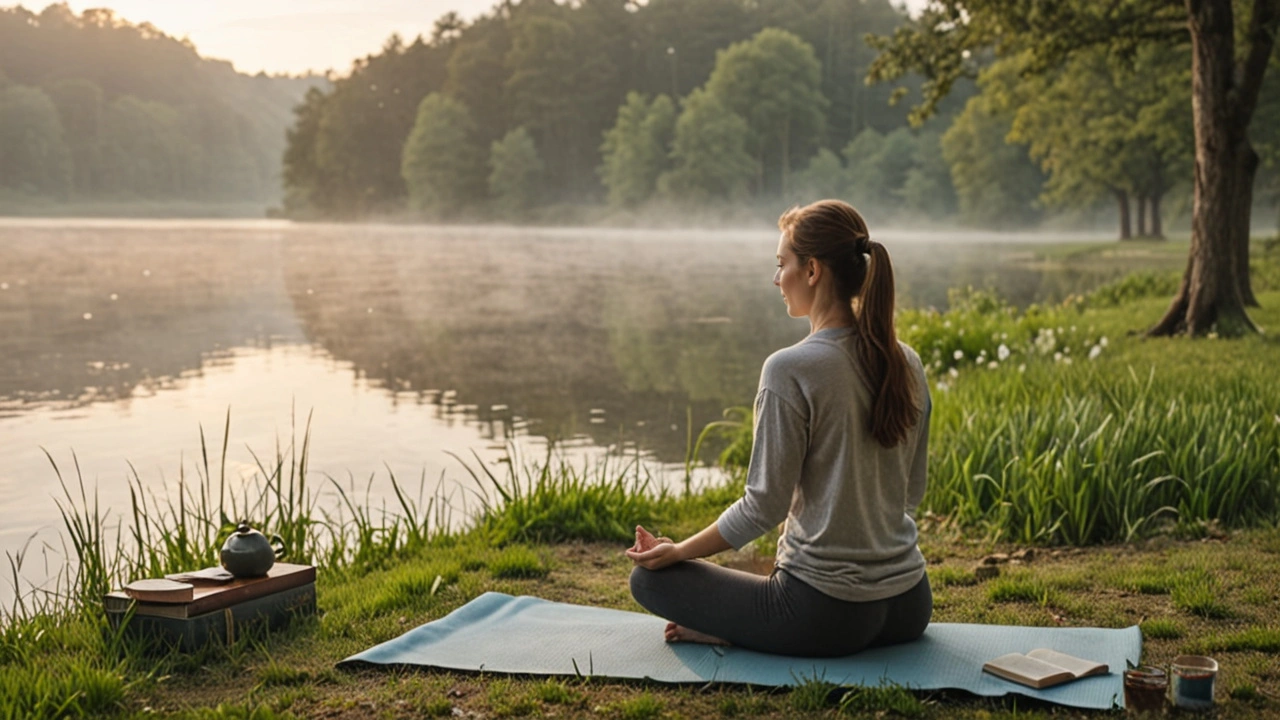
Popular Relaxation Techniques
Exploring different relaxation techniques can be an eye-opening journey. Each method offers unique benefits, and what works well for one person might not be as effective for another. The key is to experiment with various approaches until you find the ones that resonate most with you.
One of the most widely recognized techniques is mindfulness meditation. This practice involves paying close attention to the present moment without judgement. By focusing on your breath and bodily sensations, you can effectively calm your mind. Research published in the Journal of the American Medical Association reveals that mindfulness meditation can significantly reduce symptoms of anxiety and depression.
Another hugely popular method is yoga. Originating from ancient India, yoga combines physical postures, breathing exercises, and meditation to promote holistic wellness. A study by Harvard Medical School found that regular yoga practice helps reduce stress hormones and increases heart rate variability, which is an indicator of the body's ability to adapt to stress.
For those who prefer a more physical approach, progressive muscle relaxation (PMR) can be very effective. This technique involves tensing and then slowly releasing different muscle groups in the body. It's designed to help you become more aware of physical sensations and reduce muscle tension associated with stress. The American Psychological Association notes that PMR is an effective treatment for both chronic pain and anxiety disorders.
Guided imagery, also known as visualization, is another technique worth mentioning. This method involves focusing on positive images in your mind to help you relax. By imagining a serene scene or a place where you feel safe and happy, you can foster a sense of peace and tranquility. Dr. Martin Rossman, a leading expert in the field, asserts that guided imagery can not only reduce stress but also improve overall emotional well-being.
Deep breathing exercises are perhaps the simplest and yet most effective relaxation technique. By taking slow, deep breaths, you activate your parasympathetic nervous system, which helps to lower blood pressure and heart rate. According to a study published in the Journal of Neurophysiology, deep breathing can enhance brain function and reduce stress-related biomarkers.
There are also numerous apps and online resources available to help you practice these techniques. Apps like Calm, Headspace, and Insight Timer offer guided meditations, relaxation exercises, and soothing sounds to help you unwind. Incorporating these resources into your daily routine can make a significant difference in your mental and physical health.
When choosing a relaxation technique, it's essential to consider your lifestyle and preferences. The best method is one that you can consistently incorporate into your daily routine. Whether you prefer a brief meditation session in the morning, a yoga class in the evening, or a quick breathing exercise during your lunch break, taking time to relax is a valuable investment in your health and well-being.
"The practice of mindfulness and meditation is an excellent way to reduce stress, increase self-awareness, and improve overall quality of life." - Jon Kabat-Zinn
In summary, the exploration of various relaxation techniques can lead to finding the perfect method that suits your needs, helping you manage stress effectively and improving your overall well-being.
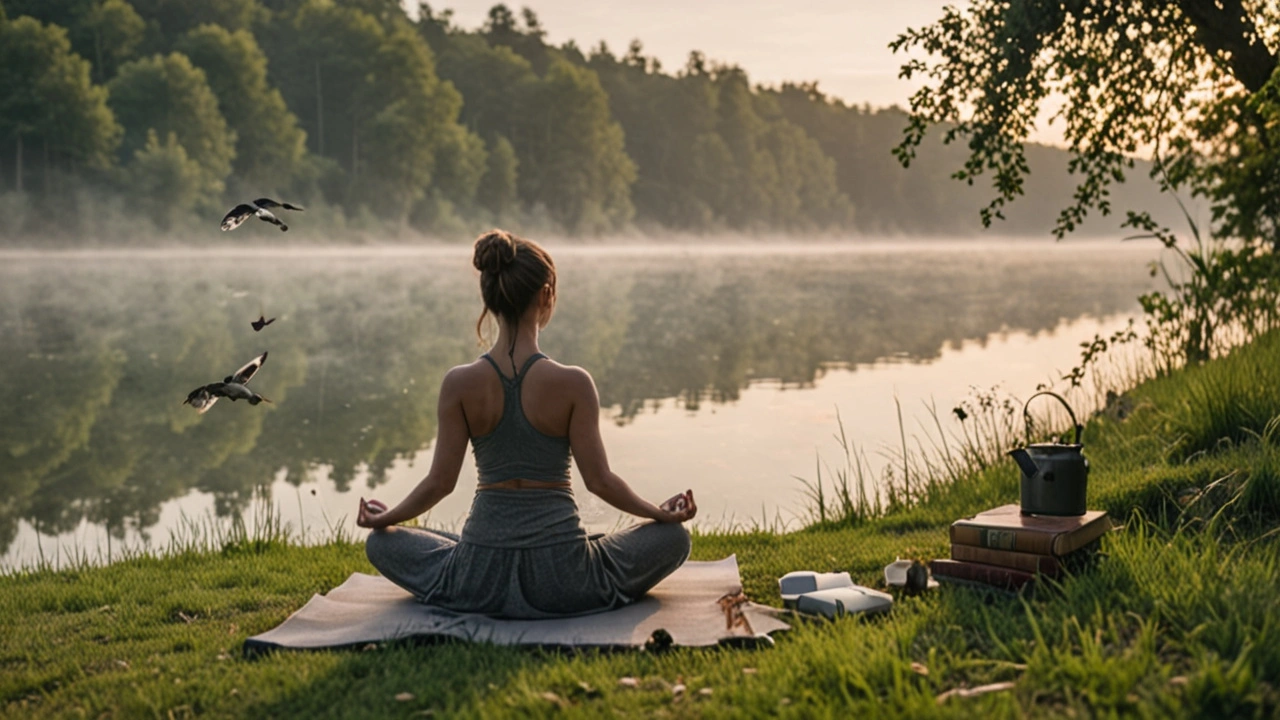
Benefits to Mind and Body
Engaging in regular relaxation techniques brings numerous health benefits, impacting both mind and body in profound ways. These *benefits* can manifest through a variety of improvements in your daily life, ultimately contributing to a healthier, happier you. From reducing stress hormones to improving your immune system, the positive effects are both vast and scientifically backed.
One of the most significant benefits is the reduction of stress levels. When you practice relaxation methods like deep breathing or meditation, your brain signals your body to decrease the production of stress hormones, such as cortisol. This, in turn, leads to lower blood pressure and a slower heart rate. Studies have shown that individuals who regularly engage in relaxation techniques have a lower risk of developing chronic illnesses associated with stress, including heart disease and diabetes.
Alongside physical benefits, relaxation also boosts mental health. These techniques provide your brain with a much-needed break from constant stimuli, allowing for improved focus and concentration. It is common for people to experience clearer thinking and better decision-making abilities after incorporating relaxation practices into their routines. Mental clarity is enhanced as the mind becomes less cluttered with stress and anxiety.
Relaxation techniques are also known to improve sleep quality. By reducing stress and promoting a sense of calm, these practices make it easier for individuals to fall asleep and stay asleep. Good sleep is crucial for cognitive functions and emotional stability. A well-rested mind is more adept at handling daily challenges, fostering a sense of resilience and emotional balance.
The immune system also reaps rewards from regular relaxation. When the body is in a relaxed state, it reallocates energy from the fight-or-flight response to other bodily systems, including the immune system. This shift allows for better defense against common illnesses and infections. One study found that yoga and meditation practitioners experienced fewer instances of the common cold and flu compared to those who did not engage in these activities.
The benefits of relaxation are not limited to individual well-being but can extend to relationships and social interactions. A relaxed person tends to be more patient and understanding, which can improve communication and reduce conflicts. Social connections are bolstered as individuals become more compassionate and empathetic through their relaxation practices.
Practicing Relaxation for Long-Term Health
Incorporating relaxation into daily life requires consistency and dedication but yields long-term health benefits. Here are some practical tips to get started:
- Dedicate a specific time each day for relaxation, making it a non-negotiable part of your routine.
- Start with simple techniques such as deep breathing or progressive muscle relaxation.
- Create a relaxing environment, free from distractions, and conducive to tranquility.
- Explore various methods, including yoga, meditation, or even mindful walking, to find what works best for you.
- Stay committed by tracking your progress and noting improvements in your mental and physical well-being.
By prioritizing relaxation, you are investing in a healthier future. Its benefits to your mind and body are immense and well worth the time and effort.
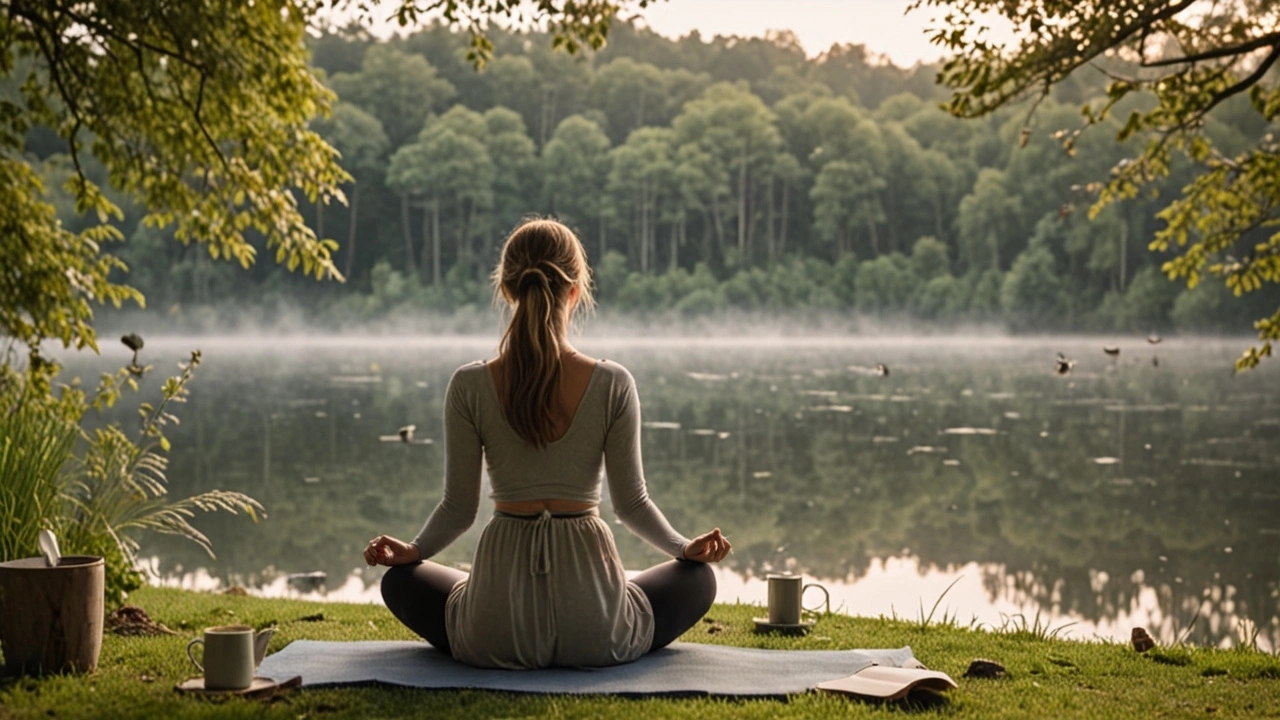
Practical Tips for Everyday Life
Incorporating relaxation techniques into your daily routine doesn't require a significant overhaul of your schedule. Small, consistent efforts can make a noticeable difference. Let's explore some practical tips for integrating relaxation into your everyday life. These methods are straightforward and can be practiced by anyone, regardless of their experience level or busy lifestyle.
Start with Breathing Exercises
One of the simplest ways to relax is through controlled breathing exercises. These practices can be done almost anywhere, whether you're at home, at work, or even commuting. Begin by finding a quiet place and sitting in a comfortable position. Close your eyes and take a slow, deep breath in through your nose, filling your lungs completely. Hold the breath for a few seconds before exhaling slowly through your mouth. Repeat this cycle for a few minutes. This technique can help lower stress levels and improve concentration.
Set Aside 'Me Time' Each Day
It's important to carve out some time for yourself each day. Whether it's 10 minutes of meditation before bed or a 15-minute stroll during your lunch break, intentionally setting aside moments for relaxation can reenergize you. Pick activities that you find calming, such as reading a book, listening to music, or practicing a hobby. The key is to make this time a non-negotiable part of your schedule.
Create a Relaxation Space
Designate a specific area in your home where you can go to unwind. This doesn't have to be a large space – even a small corner will do. Make it cozy with soft lighting, comfortable seating, and perhaps scented candles or essential oils. Over time, just being in this space will help signal to your brain that it's time to relax.
Use Guided Imagery
Guided imagery is a powerful tool to help calm the mind. This involves visualizing peaceful scenes or experiences that can induce a state of relaxation. You can find many guided imagery exercises online, ranging from forest walks to beach scenes. Listening to these recordings can help transport your mind to a tranquil place, even if only for a few minutes.
"The use of guided imagery has been shown to enhance relaxation and reduce stress in numerous studies. It's a simple yet effective tool for mental well-being." — Dr. Sarah Johnson, Clinical Psychologist
Practice Progressive Muscle Relaxation
This technique involves tensing and then slowly relaxing each muscle group in your body. Start from your toes and work your way up to your head. Tense each muscle group for about five seconds and then release. This can help in relieving physical tension and promoting a sense of overall relaxation.
Engage in Regular Physical Activity
Exercise is one of the best ways to de-stress. It doesn't have to be rigorous; even light activities like walking, stretching, or yoga can have significant benefits. Physical activity helps produce endorphins, which are natural stress relievers. Aim for at least 20-30 minutes of activity most days of the week.
Adopt Mindfulness Practices
Mindfulness is about being fully present in the moment. This can be practiced through meditation, but also through simple daily activities. For instance, while eating, pay full attention to the taste, texture, and aroma of your food. When walking, notice the feeling of your feet touching the ground and the rhythm of your steps. This focused attention can help quiet a busy mind.
Stay Connected with Loved Ones
Spending quality time with friends and family can be very relaxing. Human connection provides emotional support and can be a great stress reliever. Whether it's chatting over coffee, having a family game night, or simply sharing a meal, these interactions are valuable for your mental health.
By incorporating these practical tips into your daily routine, you can create a more relaxed and balanced life. The key is consistency and finding what works best for you. With time, these small changes can lead to significant improvements in your overall wellbeing.


